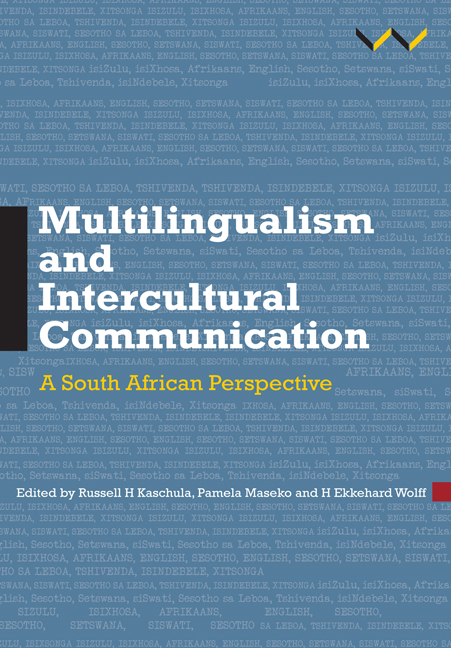Book contents
- Frontmatter
- Contents
- Tables and figures
- Preface
- Abbreviations and acronyms
- Central terms and concepts
- Introduction
- Prologue: The essentialist paradox in intellectual discourse on African languages
- Part One African language empowerment: concept formation and intellectualisation
- Part Two Language planning, terminology development and dictionaries
- Part Three Language in education
- 7 Managing multilingualism in education: policies and practices
- 8 University multilingualism: modelling rationales for language policies
- 9 Language development and multilingualism at the Cape Peninsula University of Technology
- 10 Teacher development: promoting a biliteracy approach to epistemic access
- Part Four Language in the professions: law, media, science and language technology
- Part Five Language, culture and intercultural communication
- Acknowledgements
- Contributors
- Index
9 - Language development and multilingualism at the Cape Peninsula University of Technology
from Part Three - Language in education
Published online by Cambridge University Press: 23 March 2018
- Frontmatter
- Contents
- Tables and figures
- Preface
- Abbreviations and acronyms
- Central terms and concepts
- Introduction
- Prologue: The essentialist paradox in intellectual discourse on African languages
- Part One African language empowerment: concept formation and intellectualisation
- Part Two Language planning, terminology development and dictionaries
- Part Three Language in education
- 7 Managing multilingualism in education: policies and practices
- 8 University multilingualism: modelling rationales for language policies
- 9 Language development and multilingualism at the Cape Peninsula University of Technology
- 10 Teacher development: promoting a biliteracy approach to epistemic access
- Part Four Language in the professions: law, media, science and language technology
- Part Five Language, culture and intercultural communication
- Acknowledgements
- Contributors
- Index
Summary
Sections 6 and 35 of the Constitution of the Republic of South Africa (1996) make critical provisions related to the language question – specifically, the official status of languages, the ‘right to language’ and the ‘right of a language’. According to Van der Merwe and Van der Merwe (2006), South Africans speak the following official languages: Sesotho sa Leboa, Sesotho, Setswana, siSwati, Tshivenda, Xitsonga, Afrikaans, English, isiNdebele, isiXhosa and isiZulu. Essentially, almost 70% of South Africans are speakers of African languages or have an African language as their mother tongue. On the contrary, almost 30% are speakers of either Afrikaans or English or have Afrikaans or English as their mother tongue. The rest are speakers of languages such as German, Portuguese, Mandarin, Greek, Hindu, Italian and so on. Additionally, policies and legislations such as the Language in Education Policy (DoE 1997), the Pan South African Language Board Act 59 of 1995 (amended as PanSALB Amended Act of 1999), the Language Policy Framework for South African Higher Education (CHE 2001), the National Language Policy Framework (DAC 2002) and the South African Languages Bill 23 of 2011 all articulate and support the promotion, protection and development of previously disadvantaged indigenous languages. This has been pointed out in earlier chapters.
A closer look at the educational reality leaves much to be desired. Maseko and Kaschula (2009: 130–131) point out that ‘our education system produces professionals who are largely incompetent in the languages of the clients they serve and, consequently, their service is lacking and less informed by their clients’ needs’. As a consequence of this situation, ‘students trained in South African higher education institutions [HEIs] are not able to cope in South Africa's multilingual and multicultural environment as they are not able to provide a service to the majority of the people they are supposed to serve’ (Maseko and Kaschula 2009: 130–131). These observations by Maseko and Kaschula are of particular interest in our work, for two reasons. Firstly, everything that we view, our very perception of reality, is mediated through language.
- Type
- Chapter
- Information
- Multilingualism and Intercultural CommunicationA South African perspective, pp. 182 - 193Publisher: Wits University PressPrint publication year: 2017



